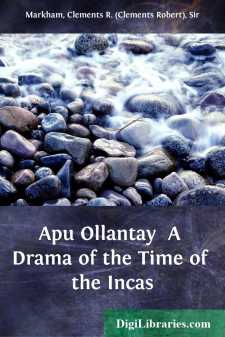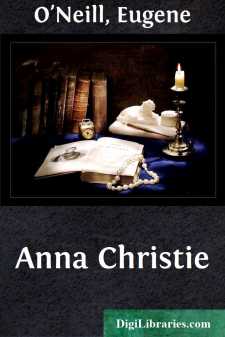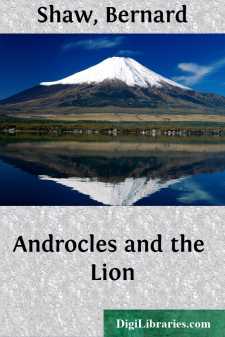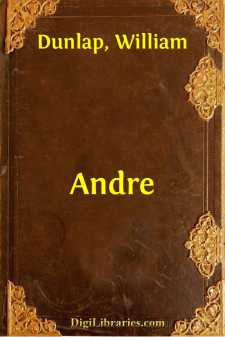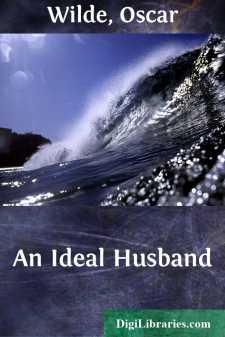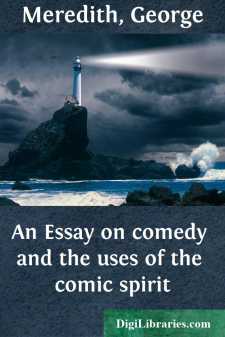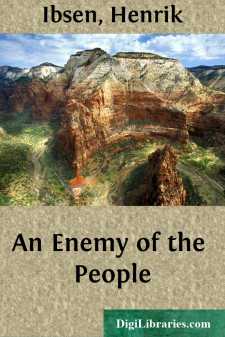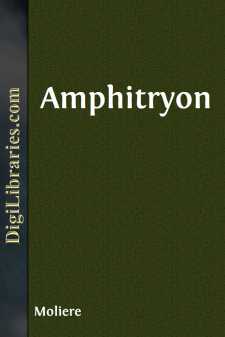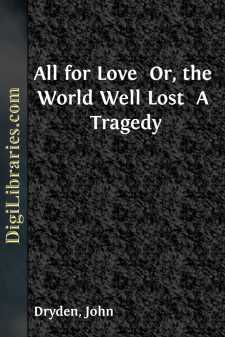Drama Books
Sort by:
INTRODUCTION The drama was cultivated by the Incas, and dramatic performances were enacted before them. Garcilasso de la Vega, Molina, and Salcamayhua are the authorities who received and have recorded the information given by the Amautas respecting the Inca drama. Some of these dramas, and portions of others, were preserved in the memories of members of Inca and Amauta families. The Spanish priests,...
more...
by:
Bernard Shaw
ANNAJANSKA is frankly a bravura piece. The modern variety theatre demands for its "turns" little plays called sketches, to last twenty minutes or so, and to enable some favorite performer to make a brief but dazzling appearance on some barely passable dramatic pretext. Miss Lillah McCarthy and I, as author and actress, have helped to make one another famous on many serious occasions, from Man...
more...
by:
Eugene O'Neill
ACT I SCENE—"Johnny-The-Priest's" saloon near South Street, New York City. The stage is divided into two sections, showing a small back room on the right. On the left, forward, of the barroom, a large window looking out on the street. Beyond it, the main entrance—a double swinging door. Farther back, another window. The bar runs from left to right nearly the whole length of the rear...
more...
by:
Bernard Shaw
PROLOGUE Overture; forest sounds, roaring of lions, Christian hymn faintly. A jungle path. A lion's roar, a melancholy suffering roar, comes from the jungle. It is repeated nearer. The lion limps from the jungle on three legs, holding up his right forepaw, in which a huge thorn sticks. He sits down and contemplates it. He licks it. He shakes it. He tries to extract it by scraping it along the...
more...
by:
William Dunlap
WILLIAM DUNLAP: (1766-1839) The life of William Dunlap is full of colour and variety. Upon his shoulders very largely rests the responsibility for whatever knowledge we have of the atmosphere of the early theatre in America, and of the personalities of the players. For, as a boy, his father being a Loyalist, there is no doubt that young William used to frequent the play-house of the Red Coats, and we...
more...
by:
Oscar Wilde
FIRST ACT SCENE The octagon room at Sir Robert Chiltern’s house in Grosvenor Square. [The room is brilliantly lighted and full of guests. At the top of the staircase stands lady chiltern, a woman of grave Greek beauty, about twenty-seven years of age. She receives the guests as they come up. Over the well of the staircase hangs a great chandelier with wax lights, which illumine a large...
more...
by:
George Meredith
ON THE IDEA OF COMEDY AND OF THE USES OF THE COMIC SPIRIT Good Comedies are such rare productions, that notwithstanding the wealth of our literature in the Comic element, it would not occupy us long to run over the English list. If they are brought to the test I shall propose, very reputable Comedies will be found unworthy of their station, like the ladies of Arthur’s Court when they were reduced...
more...
by:
Henrik Ibsen
ACT I (SCENE.—DR. STOCKMANN'S sitting-room. It is evening. The room is plainly but neatly appointed and furnished. In the right-hand wall are two doors; the farther leads out to the hall, the nearer to the doctor's study. In the left-hand wall, opposite the door leading to the hall, is a door leading to the other rooms occupied by the family. In the middle of the same wall stands the stove,...
more...
by:
Moliere
PROLOGUE MERCURY, on a cloud; NIGHT, in a chariot drawn by two horses MERC. Wait! Gentle Night; deign to stay awhile: Some help is needed from you. I have two words to say to you from Jupiter. NIGHT. Ah! Ah! It is you, Seigneur Mercury! Who would have thought of you here, in that position? MERC. Well, feeling tired, and not being able to fulfil the different duties Jupiter ordered me, I quietly sat...
more...
by:
John Dryden
INTRODUCTORY NOTE The age of Elizabeth, memorable for so many reasons in the history of England, was especially brilliant in literature, and, within literature, in the drama. With some falling off in spontaneity, the impulse to great dramatic production lasted till the Long Parliament closed the theaters in 1642; and when they were reopened at the Restoration, in 1660, the stage only too faithfully...
more...


